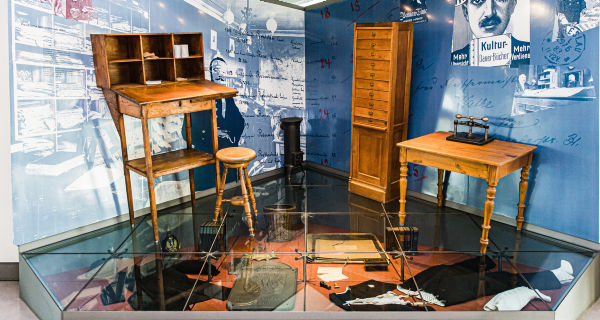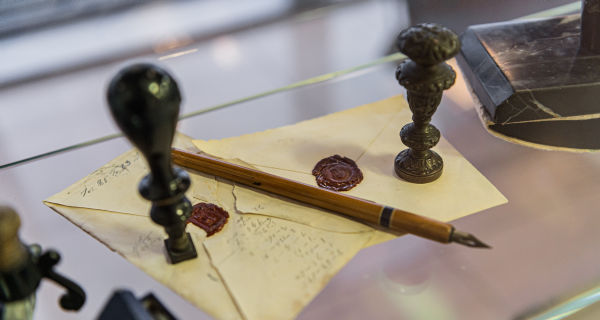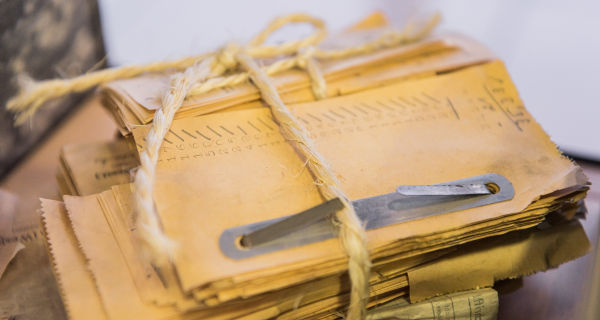The 19th century was not just an era of industrialization and mass production but also a time of constant growth in administrative work. Rising tax revenues, extensive planning and monitoring functions as well as social security, in Prussia in particular, gave rise to a mechanism of government which became the model for other countries and also for large companies operating on the free market.
Day-to-day-activities
Work at government offices was modelled on the armed forces with their rigid hierarchy and loyalty to ruler and country. Correctness, discipline and bureaucratic expediency characterized day-to-day activities. Neat writing using steel nibs and inkwells or fountain pens was essential for official business. Staff generally worked at high desks, whereas low desks and chairs were reserved for superiors. Stamps, forms and the reproduction of documents with the copy press made it easier to handle administrative jobs that were becoming more and more similar and repetitive.Mechanizsation of office-work
Pigeon-holes and cabinets like those shown in the exhibition were used to archive and file documents. Since the end of the century, there had been additional aids to keeping records, such as card indexes and correspondence folders to sort the ever greater volume of data alphabetically. The introduction of gas and later electric lighting considerably improved the conditions in offices that were frequently gloomy, and enabled people to work longer hours. Mechanization of office work and new forms of communication, such as the telephone, did not enter German government offices until the turn of the century.Organization charts increased the efficiency of administration. At the same time, office work became more and more specialized: Writing, copying, calculating, cash collecting and filing now tended to take place in rooms of their own. The work of individuals was controlled and regulated more bureaucratically. One example of this is the ban on eating at the place of work.



